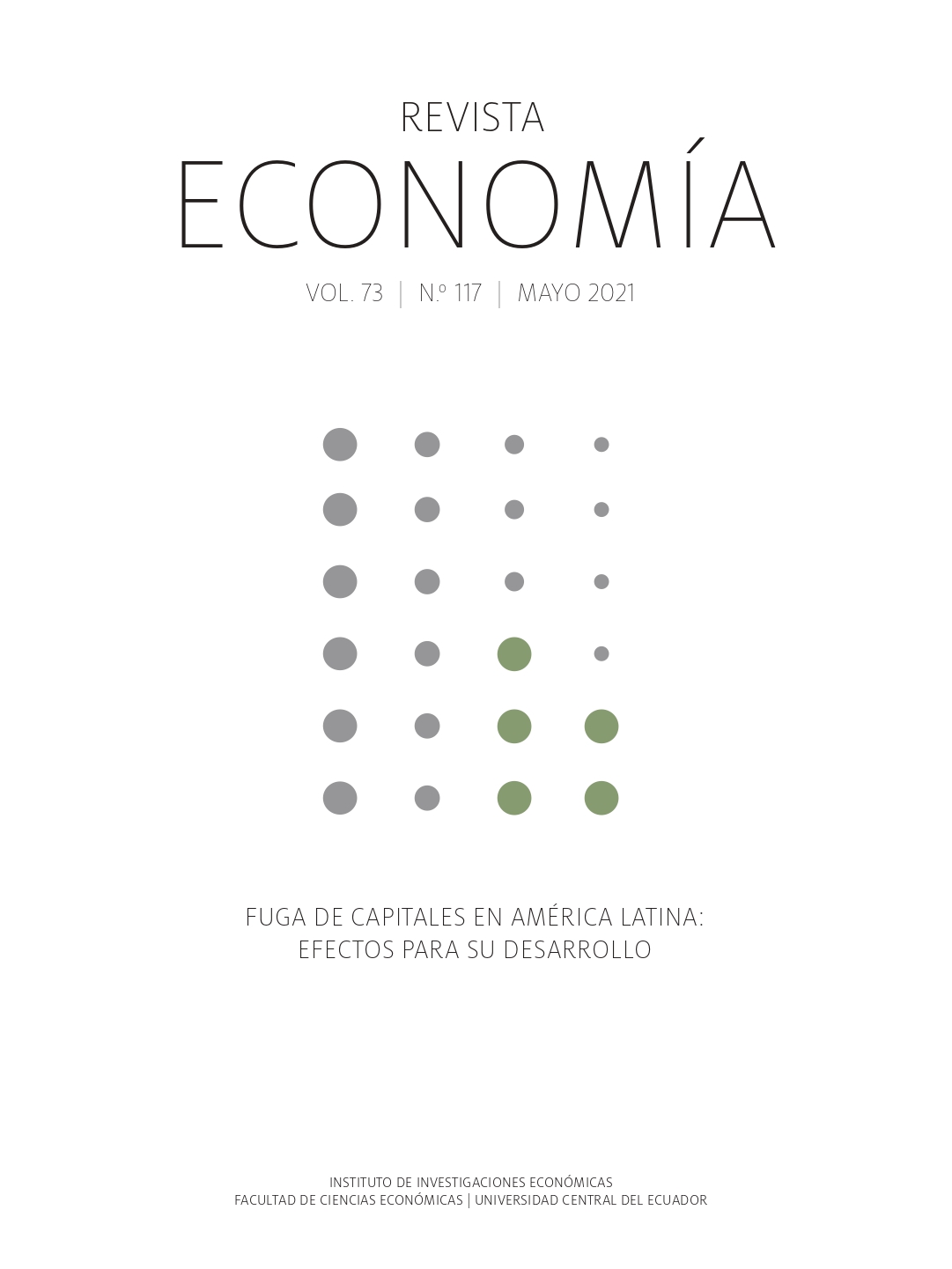EDUCATE IN THE POPULAR AND SOLIDARITY SOCIAL ECONOMY PRACTICES EDUCATE IN THE POPULAR AND SOLIDARITY SOCIAL ECONOMY PRACTICES
Main Article Content
Abstract
In order to promote the territorial paradigms of the good coexistence and achieve an economy for life, it is necessary to strengthen the practice of the Social and Solidarity Economy grounded on the history of cooperation and solidarity from local and global experiences. A new economic culture based on social benefit and not capitalist accumulation requires an education focuses on the growth of the person and the community, rather than only on the capital. The Higher Institute of Social, Popular and Solidarity Economy, implemented in the Ecuador by the Jardín Azuayo Savings and Credit Cooperative, has the objective to educate for the practice of the popular and solidarity social economy as a way of life and coexistence between persons and the environment.
Downloads
Article Details

This work is licensed under a Creative Commons Attribution-NonCommercial 4.0 International License.
The authors who publish in this journal accept the following conditions:
- The authors retain the copyright and assign to the Economics Magazine the right of the first publication, with the work registered under Creative Commons Attribution-NonCommercial 4.0, which enables third parties to redistribute, commercial or non-commercial, of what has been published as long as the article circulates completely and without changes.
- Authors can make other independent and additional contractual agreements for the distribution of the article published in this journal (for example, add it to an institutional repository or publish it in a book) as long as they clearly and clearly specify that the article was published for the first time. once in Revista Economía. In case of reproduction, a note similar to the one presented below must be included: This text was originally published in the Revista Economía No.…, volume…, number of pages, year of publication.
- Authors are suggested to publish their work on the internet (for example, on institutional or personal pages) of the final version published by Revista Economía since this can lead to greater and faster dissemination of the published article.
References
Acosta, A. (2012). Buen vivir Sumak kawsay. Una oportunidad para imaginar otros mundos. Abya-Yala.
Arellano, S. et Petras, J. (1997). L´aide ambigüe des ong, le cas de la Bolivie: un point de vue latino-américain.
Alternatives sud, 87-107.
Asamblea Nacional. (2008). Constitución 2008. Quito: Asamblea Nacional.
celam. (1968). Segunda Conferencia Genral del Episcopado Latinoamericano. Medellín conclusiones.
Chiriboga, M. (1999). Cambiar si se puede. Experiencias del fepp en el desarrollo rural del Ecuador.
Abya-Yala.
Cooperativa de Ahorro y Crédito Jardín Azuayo. (5 de septiembre de 2019). www.jardinazuayo.
fin.ec. www.jardinazuayo.fin.ec: https://www.jardinazuayo.fin.ec/
jardin-azuayo-impulsa-la-creacion-del-instituto-de-economia-popular-y-solidaria
Coraggio, J. (2011). Economía social y solidaria. El trabajo antes que el capital. Abya-Yala.
Fernandez, J., Ramos, A. y Jerez, A. (2009). Economía solidariay participación Ciudadana: Un balance de
la innovación iberoamericana. papeles de relaciones ecosociales y cambio global, 161-167.
Freddy, Ä. (2014). La distorsion del sumak kawsay. En O. Atawallpa, Bifurcación del buen vivir y el sumak
kawsay (pp. 87-124). Ediciones sumak.
Gonzalez, D. (2016). Presentación. Revista de la Academia, 5-29.
Mato, A., Santamaría, J., De Souza Silva, J. y Cheaz, J. (2001). Proyecto Nuevo paradigma: la dimensión de
«gestión» en la construcción de la sostenibilidad institucional. San José: cosude-Proyecto nuevo
Paradigma.
Polo, A. (2002). La puerta abierta. Abya-Yala.
Villasante, T. (2017). Democracias transformadoras. experiencias emergentes y alternativas desde los comunes.
El Viejo Topo.
Villasante, R. (2015). Conjuntos de acción y grupos motores para la transformación ambiental. Política
y Sociedad, 387- 408.
Rojas, J. (2009). Cooperativismo y desarrollo humano. Una propuesta metodológica para su medición.
APANTE.
Salinas, J. y Urgilés, J. (2020). Una pedagogía para la economía social y solidaria poscovid-19. Nueva
Época, 19.
Tiribia, L. (2007). Pedagogía(s) de la producción asociada: ¿Hacia donde camina la economía popular?
En J. Coraggio, La economia social desde la periferia: contribuciones latinoamericanas (pp. 195-
. Altamira.
Toledo, V. y Barrera-Bassols, N. (2008). La memoria biocultural: la importancia ecológica de las sabidurías
tradicionales. Icaria.

